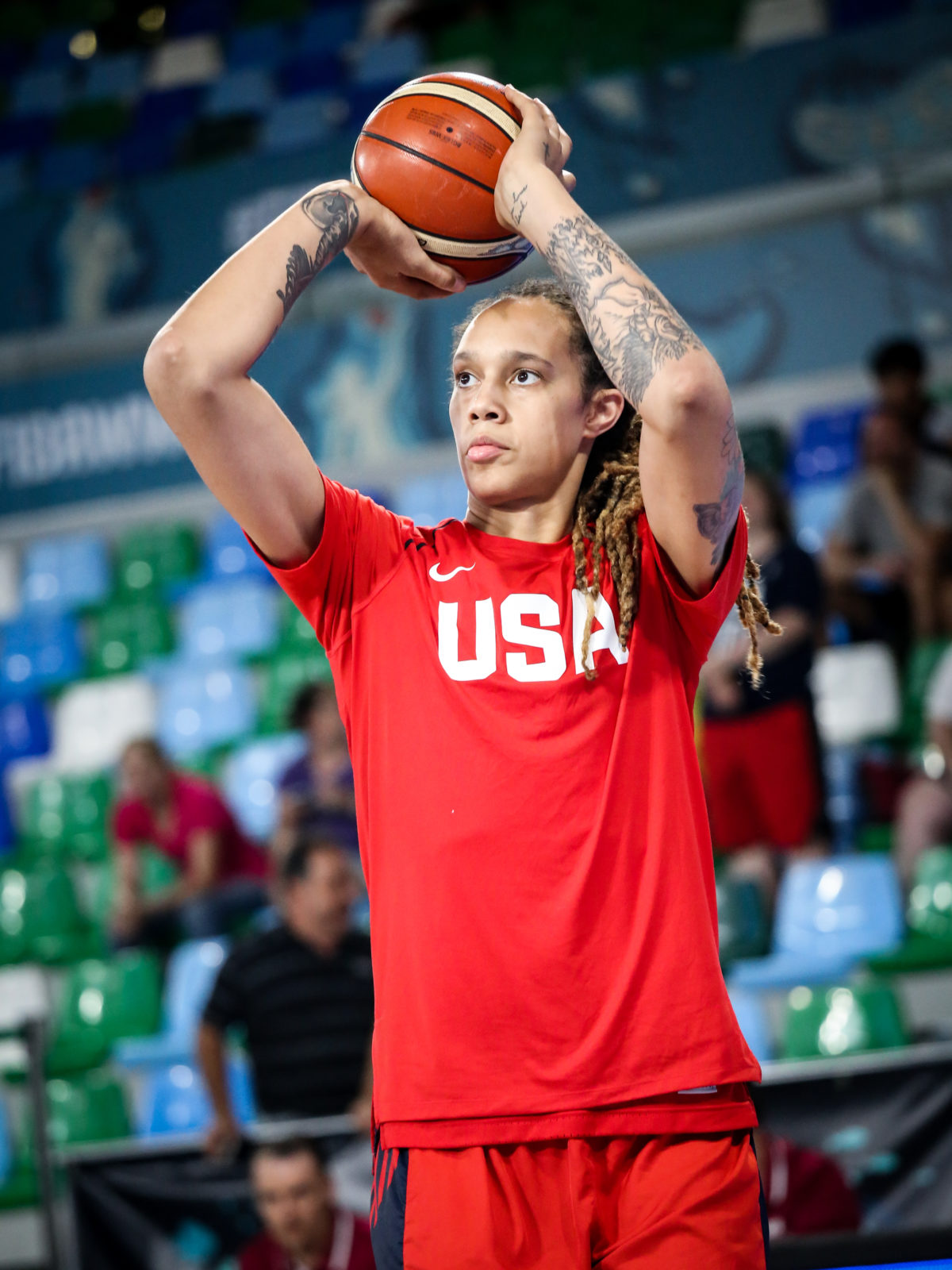
Russia invaded Ukraine on February 24th. Relations between Russia and the United States have deteriorated dramatically since then, with the US aligned with Ukraine and our allies in NATO/Europe. Additionally, this action by Russia is overtly a war of aggression, not provocated in any way by Ukraine. It is in this context that something really unconscionable is happening to one of America’s best female athletes and the silence is – oddly — deafening.
Imagine, for a moment, that – sometime in February – any one of the top Men’s NBA stars had been detained in Russia. We have no doubt that Nikola Jokic, Kobe Bryant, or LeBron James’ names would have been somewhere in the headline of every major newspaper in the United States, almost every day since they had been arrested. Imagine, additionally, that the charges being brought against any one of these starts were that they had drugs in their luggage which for any of them would have been really not believable.
Sometime in February – the exact date is not actually known – WNBA’s top star, Brittany Griner, was arrested in Russia and charged by their law enforcement with smuggling drugs – specifically vape cartridges containing hashish oil – into Russia.
There are a lot of questions, and few clear answers.
These are charges brought by Russia and it is unclear what proof has been provided. It should immediately be noted that Griner plays on a women’s basketball team in Russia during the WNBA off-season and has done this for a number of years. One could easily wonder, if she had done this for years, wouldn’t she have been very familiar with Russia’s very strict drug laws, and for her to have taken such a chance – especially during February when the crisis between Russia and Ukraine had been building dramatically. Conviction in a Russian court on these charges could put Griner in prison there for up to 10 years. So for starters, the charges are very suspect.
It should be noted that none of this has phased racist and sexist American sports fans in ridiculing her, assuming her guilt for smuggling drugs with all the usual stereotypical slurs expected when whites are judging blacks.
Why was Griner in Russia in the first place? To women’s rights advocates here, the reason is nothing less than infuriating. The US public undervalues professional women’s basketball. Per the WNBA’s current collective bargaining agreement, the average cash compensation for women players is around $130,000. Top players can earn in excess of $500,000. But by comparison, the amount even rookie men’s NBA players in the US can make is easily in the multi-million dollar range. Griner, and many other women’s basketball stars, can earn $1 million playing on a Russian team during the off-season for the WNBA. That disparity between what men and women earn in professional sports speaks to an attitude here that sports are for men.
In a recent article in The Atlantic, Jemele Hill wrote, “Russia wouldn’t be a tantalizing option for America’s best women’s basketball players if they could earn more at home and be treated with the same professional respect as NBA players. It is damning that teams in oppressive countries such as Russia and China place a higher value on players such as Griner than the teams in her own country do.”
Brittany Griner is a lesbian, and a very vocal advocate for LGBTQIA+ rights. Here in the U.S., she plays for the Phoenix Mercury WNBA team. She’s known for being very supportive of a youth center in Phoenix and has been the grand marshal of Phoenix’s Pride Parade. This also puts her on yet another list with the Russian government, which discriminates against LGBTQIA+ people in numerous ways, restricting public advocacy, and legislatively by passing what has been tagged as “gay propaganda” laws targeting minors.
Several people who have wanted to advocate more openly for Griner’s release have said privately that they have been discouraged from doing so, to attempt to keep her from becoming a political pawn in the rapidly escalating international tensions surrounding the Russian-Ukraine war. However, at the same time, we all know where a lack of focus on this case can also lead us.
U.S. officials have recently visited Griner in her Russian prison and reported that she is in good spirits and in a facility where she receives decent treatment. But her hearing or trial on these charges has been pushed to May 19, and the WNBA season here starts on May 6. This means Griner is out for the season, at best.
It’s important for women’s rights advocates and fans of women’s sports to follow this case closely and to speak out when they can for our government to continue to pressure the Russians for her release, sooner rather than later. It doesn’t seem very likely, however, that this can happen without a lot of diplomacy and work internationally to bring her home.
Please watch for any opportunities to register your support of increasing pressure on the Russians to release Brittany Griner.